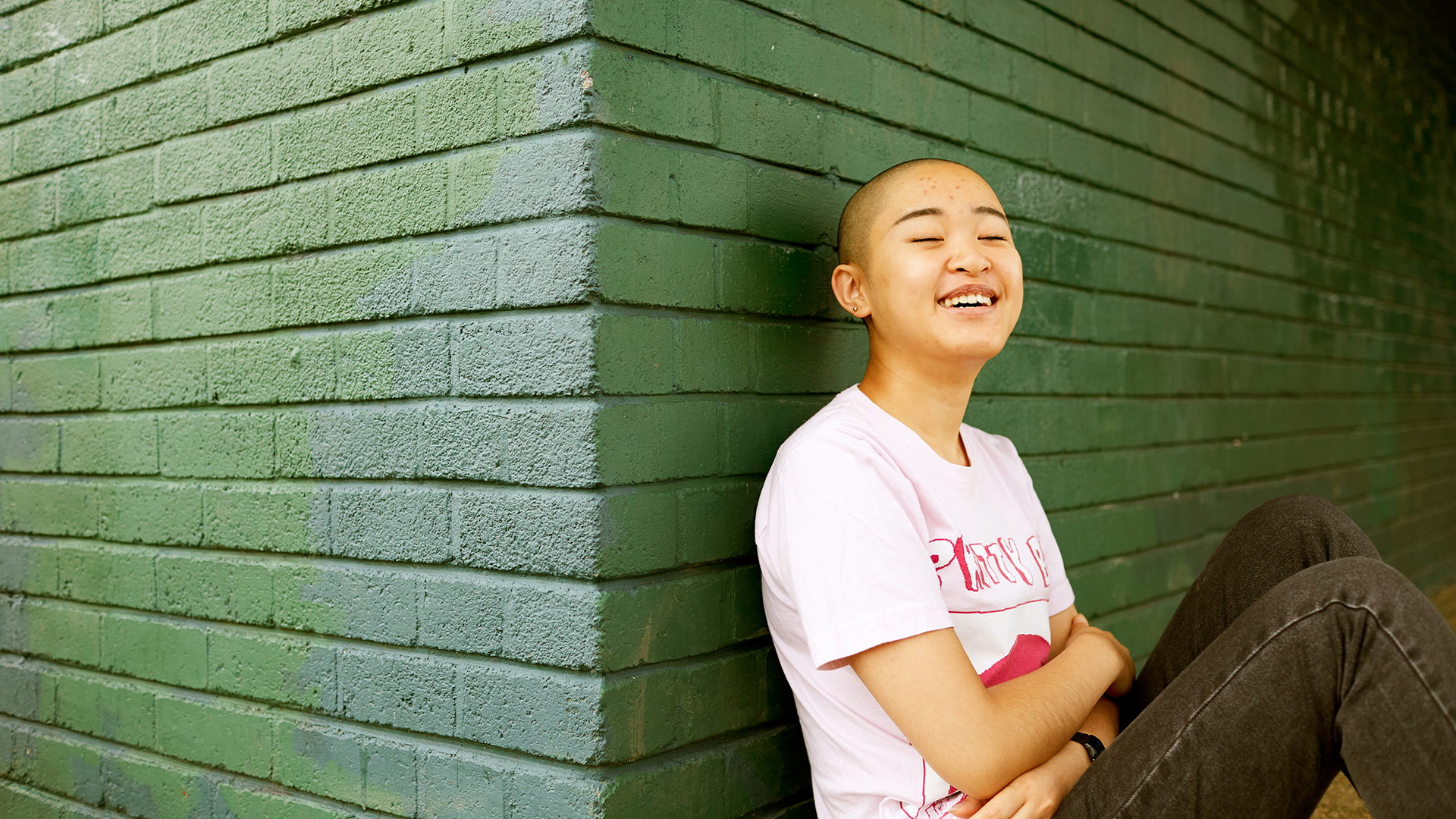Topics mentioned: anxiety, counselling and therapy, self-care, reaching out for help
About: Our bloggers share their experience of health anxiety, why asking for help was the best decision, and the coping techniques they use when feeling anxious.
There are so many people going through the same thing, and that’s something I’ve realised since I started talking about my own experiences – you’re never alone in what you’re going through.
I asked for help - and it was the best decision
Mollie, 19
Health anxiety has been present in my life for as long as I can remember. From being physically frozen with fear anytime anyone was sick at school, to not sleeping or eating properly for weeks when I was going through a cancer scare.
I’d pushed my thoughts, fears, habits and anxieties to the back of my mind until I reached my 19th Birthday. I’d had a terrible trip away where I thought I was ill and EVERYTHING I’d kept squashed down came to the surface.
I vowed on the morning of my birthday that I would start therapy and for the first time in 19 years, I asked for help. It was the best decision I ever made.
Here's where you can get help for health anxiety:
I had no idea how many options were available – whether you’re looking for help in the form of therapy, medication or counselling, they can point you in the right direction. Admitting that I couldn’t cope on my own was something that took me a while to accept, but I don’t know where I’d be if I hadn’t have taken that step.
I chose this option. I filled in a quick form, had a phone call a few days later and started cognitive behavioural therapy (CBT) within a few weeks! After six weeks of CBT, I finished therapy a few months ago. I’ve been able to attend events with 100s of people, drive 100s of miles across the country, and say ‘yes’ to things I would’ve run away from before.
Often, our thoughts can be incredibly overwhelming, but saying them out loud can take away their power. There are so many people going through the same thing, and that’s something I’ve realised since I started talking about my own experiences – you’re never alone in what you’re going through.
When you feel like you’re not where you want to be, look back on everything you’ve achieved and realise how far you’ve come – even when it doesn’t feel like it!
Top tips for when you're feeling anxious
-
Be kind to yourself like you would a friend
Talk to yourself how you would a friend or family member. Pushing yourself to do things out of your comfort zone is so important, especially with health anxiety. But things don’t always go to plan. If you try to go to an event, visit someone or tackle something that scares you and you don’t manage to do it – that's OK! There’s no time limit on your own journey. You will get there. It might just take a few tries first.
-
Try calming techniques
Do things that you enjoy and make you feel calm. For me meditation, colouring books or reading give me some breathing space to organise my thoughts. Just before something I’m nervous about, I sit for a second and just let the anxious thoughts drift over my mind without paying them too much attention.
-
Celebrate how far you've come
Write down your achievements, no matter how small. I keep a diary of everything I've overcome every single day – from walking past someone with a cough without getting in a panic to attending a huge event with 1000+ people – both mean as much as the other. When you feel like you’re not where you want to be, look back on everything you’ve achieved and realise how far you’ve come – even when it doesn’t feel like it!
Tips to cope with health anxiety
Anonymous
For years I’ve struggled with a constant fear of becoming unwell and convincing myself that I have major health issues. It began to take over my life, with every small symptom causing me great distress and panic. When I realised that I was suffering from health anxiety, everything made a lot more sense.
Health anxiety continues to affect my life, but over the years I’ve learnt how to manage it better. It can often feel overwhelming and isolating, but I can assure you that if you’re also struggling with it too, you are not alone.
Acknowledge your anxious thoughts
- The first step that helped me was recognising that I was experiencing anxious thoughts every time I experienced a slight bodily change.
- For example, each time I had a headache or mild pain, I would immediately think it was something serious. I’d feel extremely anxious and panic that I was critically ill.
- Acknowledging this recurring pattern helped me understand that my brain was assuming the worst with little rational thought. I realised that my problem could be related to my anxious thinking, rather than my physical health.
Avoid Dr. Google!
- It’s so tempting to google our symptoms to find quick answers to what’s causing the issue.
- However, Google only shows us general results that are often about serious health conditions. This worsens our anxiety and confirms our beliefs that our symptoms are serious.
- Remember, Google can’t diagnose us. It doesn’t take our individual situation into account. Googling symptoms easily leads to self-diagnosing, which can be dangerous as it’s often inaccurate.
We can slowly train our brain to replace catastrophic thinking with more rational thinking by questioning how accurate our thoughts really are.
Get advice from medical professionals
- Book in to see a medical professional, such as a GP or nurse. They can help you make sense of your symptoms.
- You could also discuss your anxious thoughts about your health. They can refer you to a mental health specialist if they think this could help you.
Build techniques to overcome your anxious thoughts
- We can gradually learn to overcome our anxious thoughts by practising techniques such as thought-challenging.
- Health anxiety is often the brain’s automatic assumption that the symptoms signal the worst possible scenario. This is known as catastrophising.
- We can slowly train our brain to replace catastrophic thinking with more rational thinking by questioning how accurate our thoughts really are.
- For example, a headache is much more likely to be just a headache than a tumour. Especially if our medical checks show that we are healthy, and the ache began after not drinking enough water.
- Logical thinking encourages us to take a step back and consider the situation rationally.
Don’t bottle it up!
- It’s important to share how you’re feeling with someone you trust. Health anxiety can be very distressing, and you don’t deserve to go through this alone.
- Opening up means those who care about you can give you support.
If you don’t feel comfortable talking to anyone in your life, you can seek support from lots of websites and services.
Health anxiety can be very distressing, and you don’t deserve to go through this alone.
More information and advice
We have tips and advice to help you find the support you need. Take a look at our guides.
Where to get help
However you're feeling, there are people who can help you if you are struggling. Here are some services that can support you.
-
Childline
If you’re under 19 you can confidentially call, chat online or email about any problem big or small.
Sign up for a free Childline locker (real name or email address not needed) to use their free 1-2-1 counsellor chat and email support service.
Can provide a BSL interpreter if you are deaf or hearing-impaired.
Hosts online message boards where you can share your experiences, have fun and get support from other young people in similar situations.
- Opening times:
- 24/7
-
Samaritans
Whatever you're going through, you can contact the Samaritans for support. N.B. This is a listening service and does not offer advice or intervention.
- Opening times:
- 24/7






